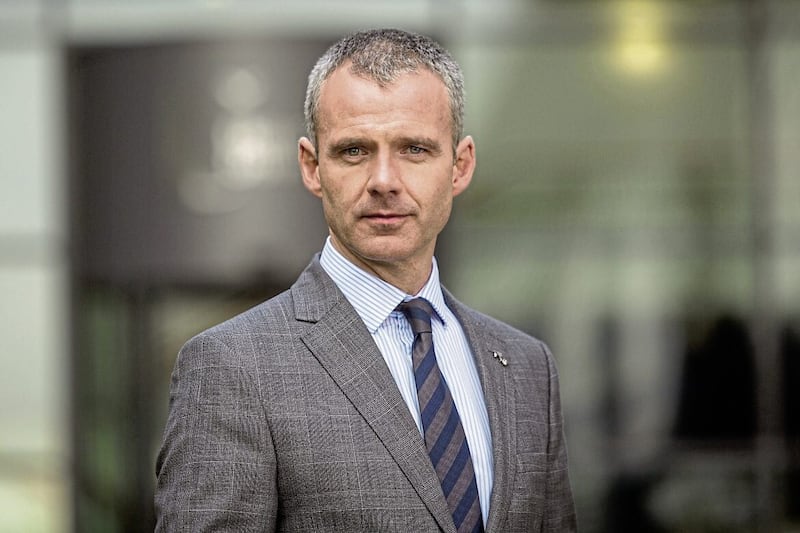Our recent economic circumstances have been difficult, and the immediate outlook is equally challenging, therefore in an effort to focus on the positive for 2025, this piece will discuss possibly one of the most transformative technologies ever developed, namely artificial intelligence, or AI.
AI has rapidly evolved from a concept only written about in science fiction novels, to become an integral part of our daily lives, whether we know it or not. The launch of publicly available chatbots in the last two years such as ChatGPT, has brought them to the forefront of public consciousness, but they have been playing an increasingly important role behind the scenes for several years.
AI powers many of the services we take for granted. When a streaming company suggests a new show for you to watch, or when your phone’s camera instantly adjusts settings to capture the perfect photo, that is AI hard at work.
Smartphone features like predictive text and facial recognition enhance user experience, while fitness trackers provide personalised health insights through real-time data analysis. Also, Sat Nav systems use AI to offer real-time traffic updates and optimal routing to reduce journey times and congestion.
In the workplace, AI is revolutionising a wide range of industries. Manufacturers use AI-driven robots for precision tasks, improving productivity and safety. Advanced data analytics powered by AI enables real-time decision-making, optimising supply chains and predictive maintenance.
AI chatbots have made customer service more efficient, responding quickly to queries, allowing (real) people to focus on more complex tasks. While some may find automated responses impersonal, there is no denying the efficiency and convenience they offer.
Probably the most exciting benefits from AI will come in the field of healthcare. In years gone by, like all professionals, doctors would rely on their training and experience to make judgements on patient symptoms. Although this approach has served us well, it creates significant scope for human error.
AI can change that, with its ability to analyse vast amounts of medical data very quickly, it can identify conditions more accurately. For example, AI is not just analysing X-rays, it can help make diagnoses before symptoms appear. Therefore, combining doctors’ professional expertise with AI insights allows for earlier treatment and much better health outcomes.
These implications are also profound in terms of the labour market. Given the increasing range of tasks AI can complete, the question is often asked if this new technology will replace people in the jobs market?
Although potentially concerning, it is important to remember that this question has been asked many times over the last two centuries as automation revolutionised farming and then manufacturing. The experience to date is that economies have developed new jobs to replace those lost.
Also, it is more likely that AI will replace specific routine tasks within a broader job role, rather than the entire job itself. This is similar to the adoption of technology in the 1990s and 2000s when desktops and software were introduced to workplaces around the world and changed the way we worked.
History is simply repeating itself, AI will not take your job, but someone using AI will. Therefore, the best advice is not to be left behind, those who embrace this new technology will be the most successful.
So far so good, however, AI’s growing presence in our lives goes beyond greater convenience and improved workplace productivity. Ethical and societal considerations are becoming more urgent. For instance, AI systems run on vast quantities of personal data, raising concerns over privacy and surveillance.
In addition, AI systems can significantly influence public discourse and opinions. Social media already filters the information we see, potentially creating echo chambers and presenting extremist views as the mainstream.
As these systems become even more powerful, it will be important to understand the broader social implications to ensure a well-informed society. This key issue of regulating AI while continuing to foster innovation is challenging Governments worldwide and different priorities are emerging across the globe.
For example, both the US and China are leading on the development of AI technology through significant private sector and government investment. In contrast, the European approach tends to place greater emphasis on regulation, which is positive from a safety perspective but risks lower levels of innovation and adoption.

Whilst AI is a technology that carries risks for society, the genie is out of the bottle and cannot be “un-invented”, it also has the potential to improve the quality of life for everyone by making us both healthier and wealthier.
The trick is to ensure the technology is developed in a safe way that serves society and the power is democratised rather than held by a select few. Would it not be the greatest irony if we needed AI to help us achieve that?
- Gareth Hetherington is director at the Ulster University Economic Policy Centre (UUEPC). The views expressed are his own







